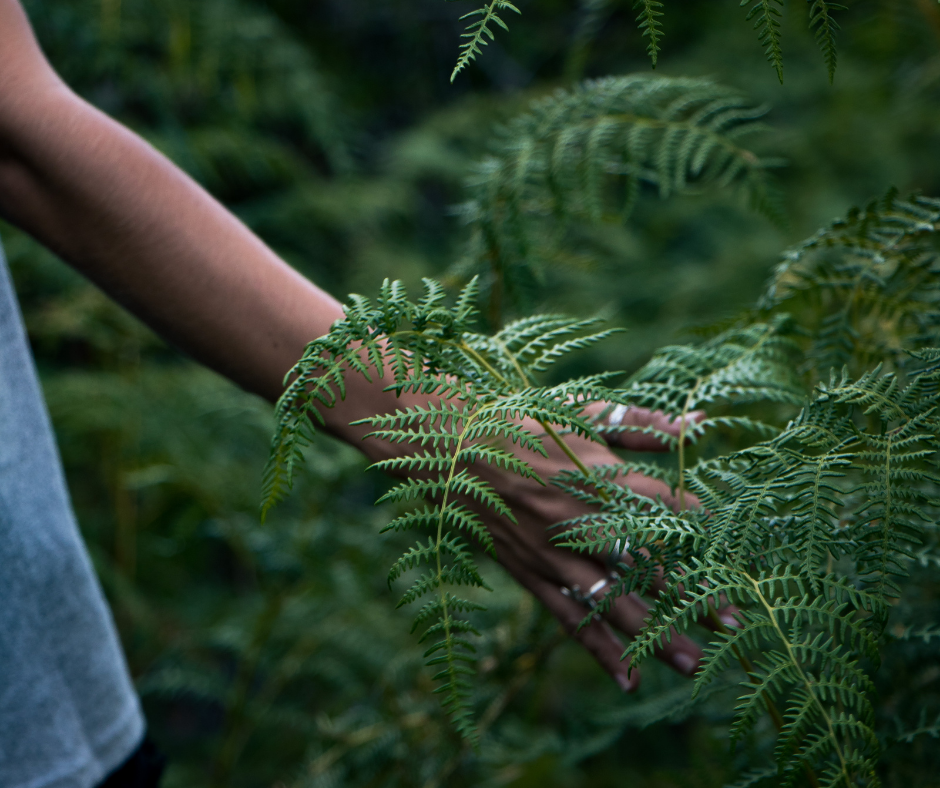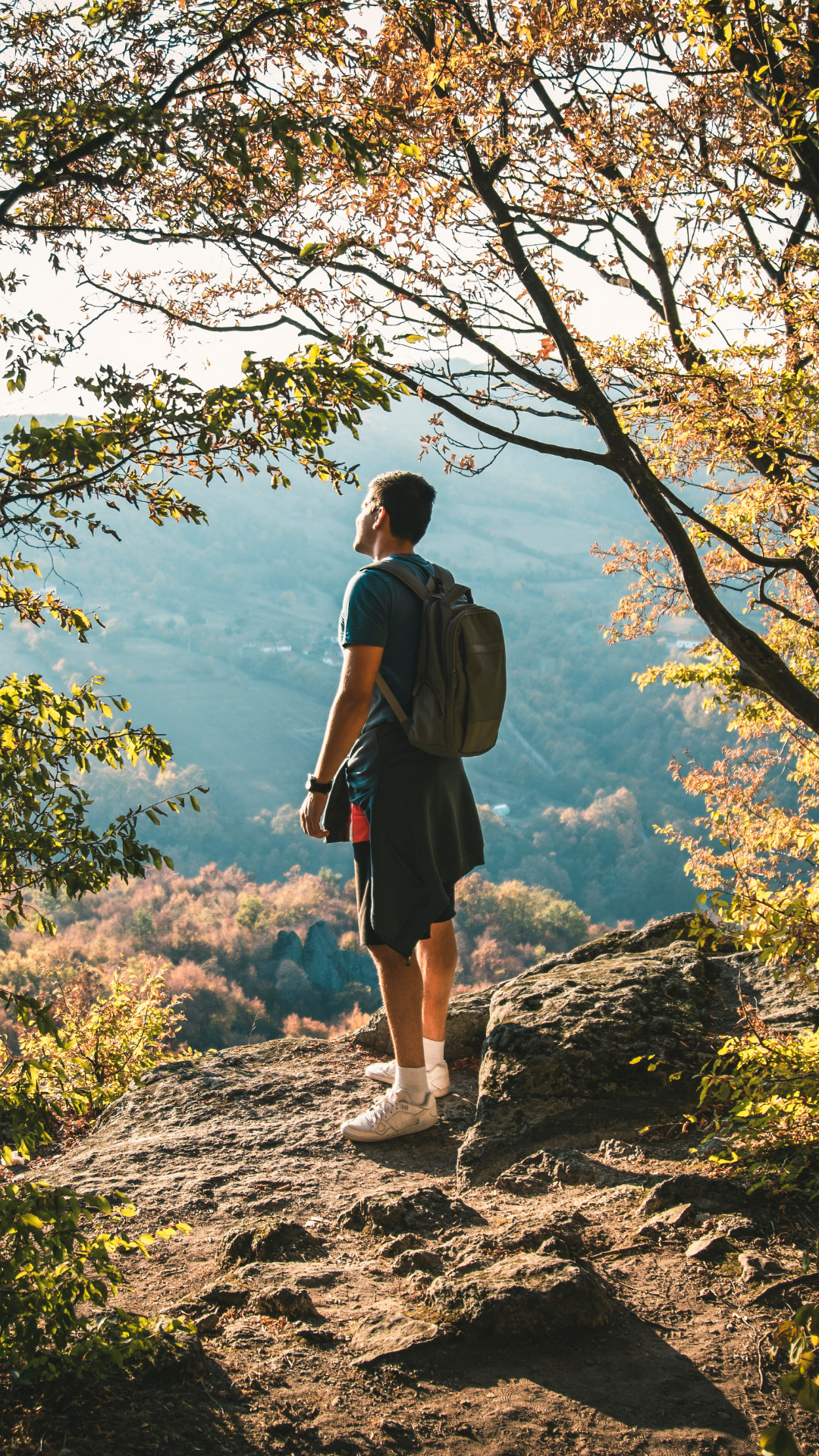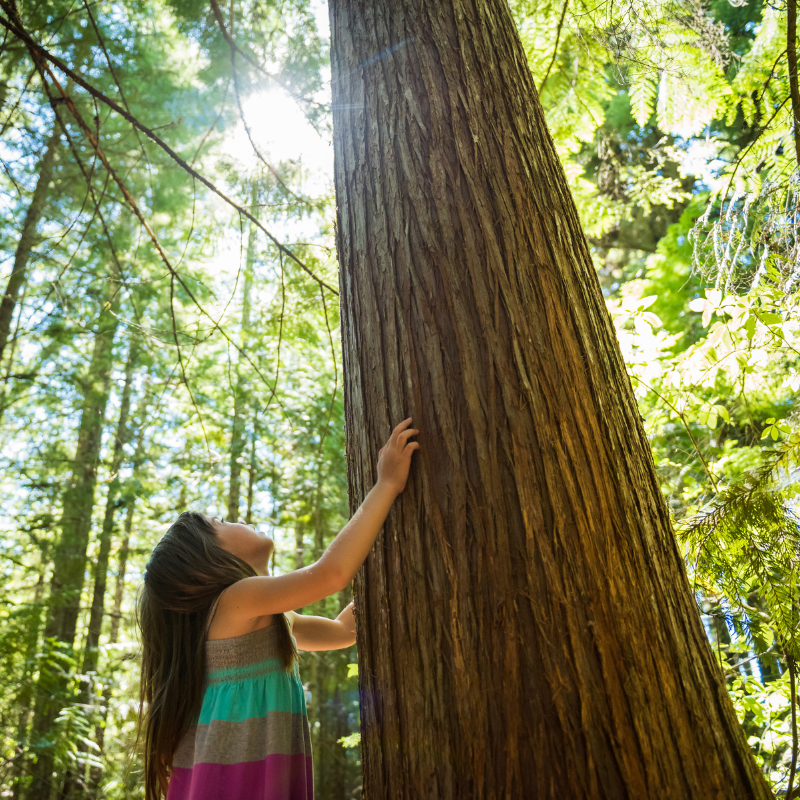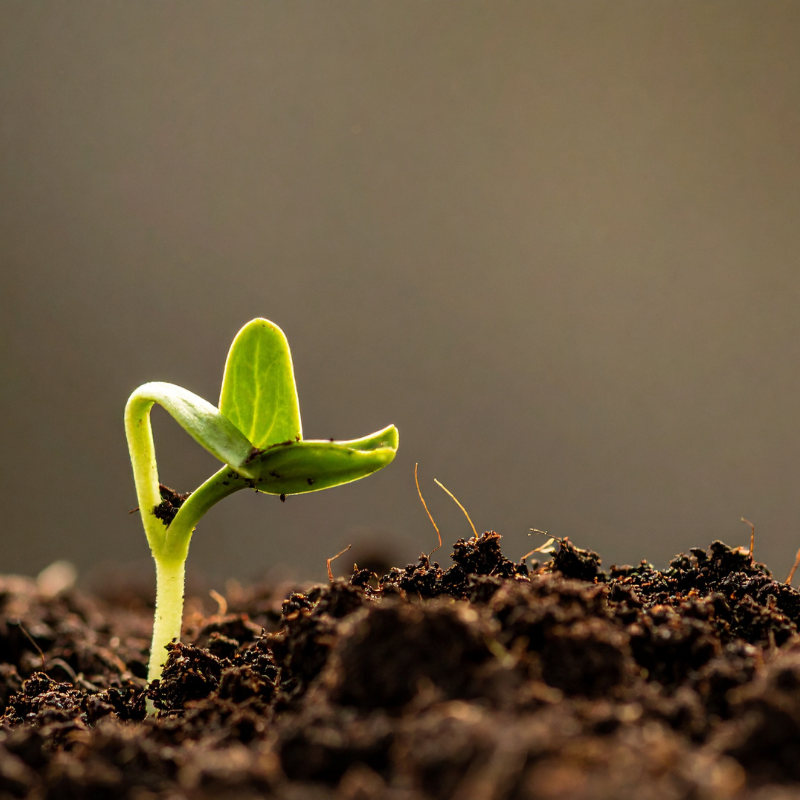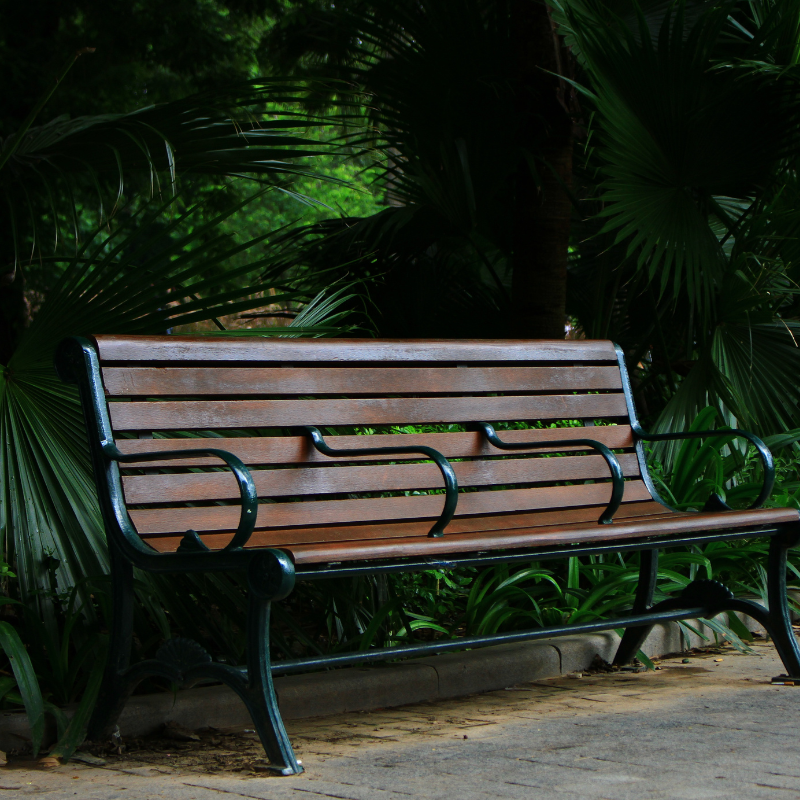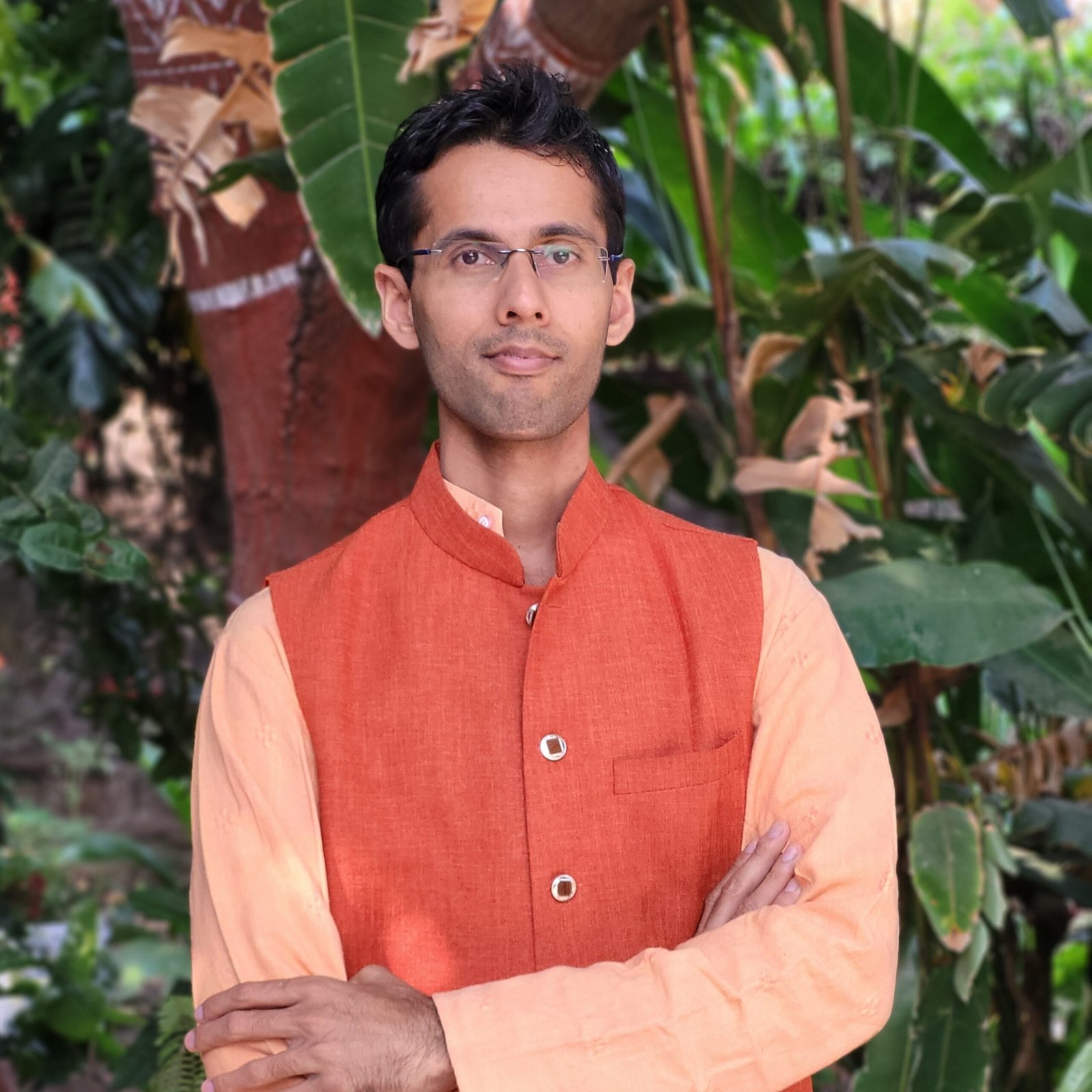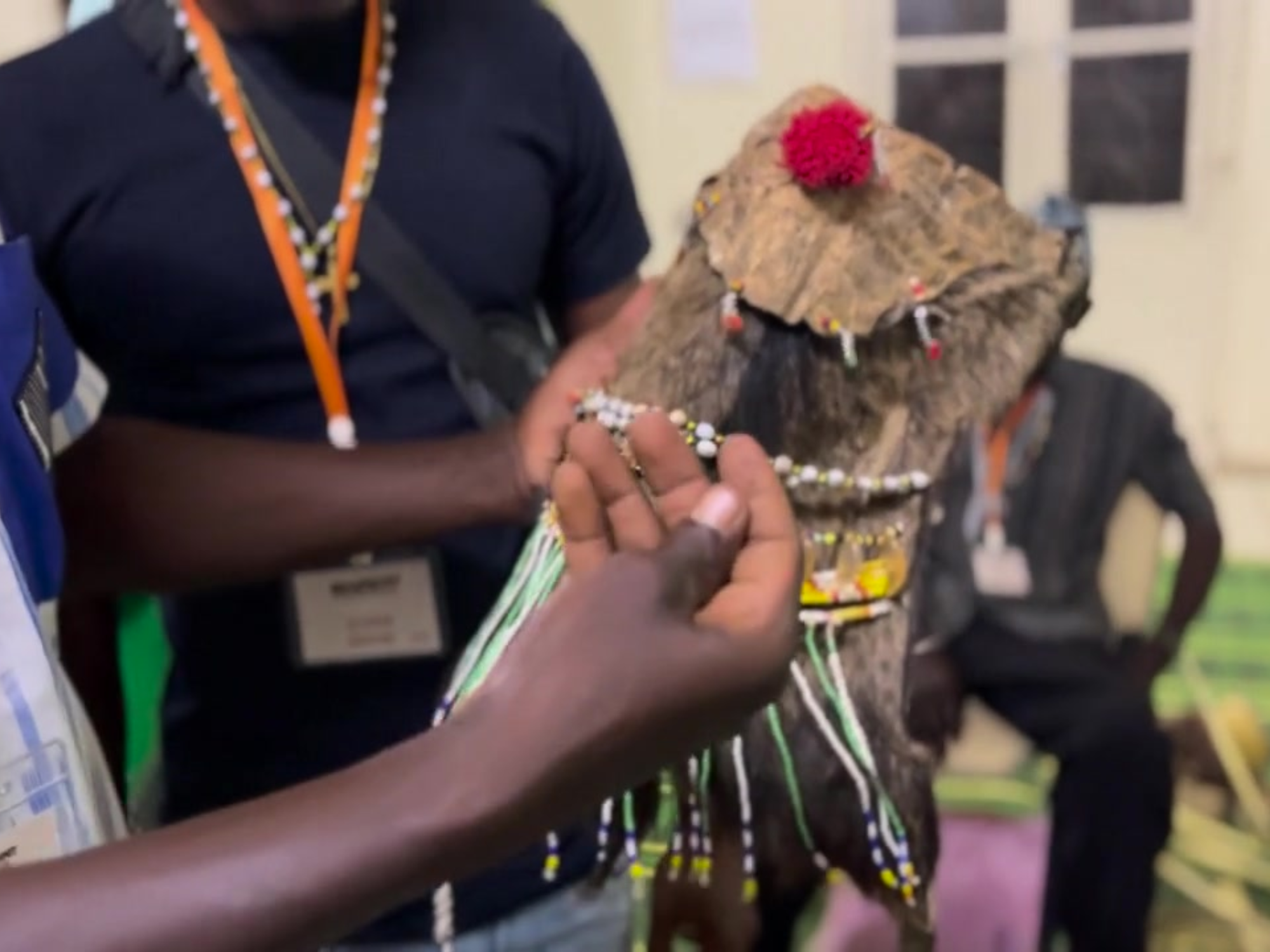Welcome to At The Heart Of It, a podcast where we explore issues at the heart of our world’s biggest challenges and their solutions. We’re on a journey inward going into ourselves, reflecting on who we are, listening to humanity’s collective story. Our guides are the visionary leaders, activists, scholars, and practitioners who are changing the world and whose own inner journeys of wellbeing inspire their welldoing.
Today’s guest brings the heart of India’s traditional knowledge systems to the world of social change. Dr. Mala Kapadia is director of the Anaadi Center for Indigenous Knowledge Systems at the Anaadi Foundation located in south India, where she leads transdisciplinary research to connect with wellbeing sciences from India and around the world.
She also holds a couple of other important titles, one of which is Principal Investigator for the Indian Ministry of Education’s Indian Knowledge Systems Research Project on happiness and wellbeing. Mala’s work allows her to take deep dives into the unique aspects of Indigenous traditions while finding connecting threads between different cultures and ways of viewing the world – particularly how intergenerational trauma impacts all of us, our cultures, and the planet, and how we can find healing in the wisdom of the past. This bird’s-eye view lends a special approach to her wellbeing and welldoing, and today she’s inviting us to see the world connect with each other and heal from this great height. Let’s get to the heart of it.
Madelaine VanDerHeyden (MV): All right. Well, hi, Mala. Welcome to the podcast. Great to have you here. I know we’re a little bit far away from each other these days. I’m in France and you’re in New Zealand. So it’s very late for me, very early for you. So thanks for calling me at this time. I thought we could get started just by you telling us a little bit about who you are and the work that you’re doing at Anaadi Foundation.
Dr. Mala Kapadia (MK): Sure. I’m Dr. Mala Kapadia, and I work with Anaadi Foundation. It’s a non–governmental organization based in South India, and we do a lot of research and create curriculum based on Indian knowledge systems, my entire journey, Madelaine, has been through various fields from psychology to literature to human resources, Ayurveda, yoga. And I’m happy to now see all the dots and connect them in different areas of research as well as education.
MK: So, we work at multiple levels, we create curriculums, we offer them to different universities from schools to parents to corporates, higher education. We work with the Ministry of Education in India, where at the moment I’m working on a project on creating a wellbeing and happiness framework and index based on Ayurveda. So there is a lot of research based on my wellbeing and happiness project. We have written a book, a small booklet called Sukha Sutra. These are wisdom on how to remain healthy and happy for school children. It was quite a challenge, right? Schooling for very young children so that the next generation can have more wellbeing and a healthier life. How do you give them the metacognition, metavalues, metaskills? Meta is an aerial view, right? It’s a heightened view, where we are able to connect all the dots and see the intricacies of all the paths. This is how we use the GPS system when we are driving because we don’t know what’s ahead. So, metacognition and metawareness help us understand how we and everything around us are connected. Not only that, but how the cosmos and us are made up of the same stuff. What happens outside happens inside, right? So that’s the first pillar for health and wellbeing. The second pillar that flows is of metavalues. Once I know who I am and how we all are interconnected, how the wellbeing of planet is connected with my wellbeing, that metacognition gives me meta values, and values become a foundation for our character and that foundation gives us skills. So those skills then can be applied in life to be in a state of wellbeing and happiness.
MV: And so these knowledge systems from India, these different sciences, I know what they are, and that’s why we’re speaking today, but maybe our listeners don’t. So could you start by first sharing what is the Indian science of Ayurveda?
MK: They describe Ayurveda as a manual of life skill. It’s not just a medicinal system. It’s veda, knowledge of ayu. Ayu is life. And the beauty of Ayurveda is that it is for everyone, so it’s not for Indian people. It’s not for the people from certain regions. But the sages talked about humanity at large. They say that our life has purpose and meaningfulness and to achieve that, there are paths. So the path begins with dharma, so anything that sustains you and holds you together, is dharma. And I felt it’s a beautiful way to look at our life. It’s only psychology has taken more than 200 years to reach positive psychology where Martin Seligman and others are talking about meaningfulness. And here there are sages many, many millennia ago who wrote about how life has to be meaningful for us to be healthy and happy. And then they describe life as hitha, beneficial to self and others, because they always saw life as a continuum. We and the cosmos, we and everyone else, are interconnected. And only when we are leading a life which is interconnected and integral can we be happy. And happiness is, not the pursuit of happiness that we understand today in a modern language, but it’s all about the state of being. It is called sukha in Sanskrit. Su is auspicious, Kha is space. So how do you create beautiful, auspicious space where you live, whether it’s your body, whether it is your mind, whether it’s the community, whether it’s the nation or whether it’s the world? So with all the wellbeing crises that we see today, I realize that Ayurveda beautifully connects the wellbeing of the planet and wellbeing of an individual. It’s a continuum. In Ayurveda, in Yoga, the continuum is very beautifully described. So when I go back to Yoga and Ayurveda as ancient sciences as I said, if we all are integrated, we all are connected, then my energy and the world’s energy are somewhere merging together. And energy as we all know cannot be created or destroyed. It needs to be transformed. So when we look at trauma, what is it impacting? Is it impacting your security? Is it impacting your relationships? Is it about your power or victimhood? Is it about your heart experiencing gratitude or is it about your heart experiencing a closed xenophobic existence where you switch on to a survivalistic mode? Now this is where Yoga and Ayurveda come into play because they have a lot of practices which can help you dissolve these traumatic emotional imprints without wanting to bring them up to the brain, which is not able to cope. And when I say Yoga, it’s not just exercise or breathing exercise or physical postures, right? Because Yoga, Patanjali’s Yoga Sutra, one of the oldest text of collations of yoga sutras, talks of Yama and Niyama, which are the behavioral codes at individual level and collective level. So unless we practice them, doing breathing exercises and doing postures, will not give us results.
MV: And in your opinion, Mala. Do you think that with the curriculum that you’re developing, the books that you’re writing, for example, is it filling a need there? Because, I’m just going to suggest some things, and you can tell me if I’m completely wrong, but is the need there because you think that there needs to be more awareness around wellbeing or more connection back with India knowledge systems? A mix of both? Am I getting it completely wrong? Why do you think this work is needed?
MK: You’re absolutely, you’re absolutely right. It’s both right. One, it needs awareness. I mean, unfortunately, in any colonized country, the country and people take very long time to come out of the colonized mindset. And therefore, in India, unfortunately, there was nothing Indian in our education system. When I studied psychology, I was horrified because all of our textbooks were either American or Europe-centric. You know, there was nothing Indian. All the philosophy is totally missing from the curriculum. The same with economics, the same with political science, the humanities. So that’s where we realize bringing back the Indian knowledge system, which is not India as a geopolitical boundary, but India as a civilization, ancient wisdom needs to be revived, revisited, and integrated wherever possible.
MV: Well, I’ll just, I’ll just say just on the topic of post-colonial impact, or ongoing colonial impact, and then bringing in the topic of intergenerational trauma: do you see a trauma response in this dynamic? You know, what is the impact of trauma in educational systems as it relates to needing to bring in more of a strong presence of Indian knowledge systems because they’re not there? Are those two related? Not so much? What do you think?
MK: Absolutely related because I realize that, let’s say when we say trauma, what is a trauma, right? Trauma is a wound that we carry within ourselves which is not healing. And it’s like, maybe you have a large house and you have forgotten your air conditioning or you have forgotten your tap, which is leaking water in an attic or a basement. And for many, many years you don’t realize why your electricity bill or the water bill is so high. But it’s taking a toll on you. So unless you dive deep, unless you visit all the rooms in your large mansion to locate the problem and fix it, the same way trauma is something that I think all of us carry within us. It could be due to colonization. It could be due to climate change. It could be due to wars. Nowadays we also talk of climate refugees, so it could be due to displacement because of war or climate change. Everything that is happening in the world is impacting us. Quantum science calls it the butterfly effect, right? That even far away in time, if a butterfly flutters it’s impacting everything else around. Because all of us are energetically connected. Now, unfortunately, as I gave the example of electricity or leakage in water, the same thing happens to trauma. We have it at a cellular level. However, we are not even aware of it. So what happens? It becomes our frame of reference when rather than respond, we are just reacting to life out of that trauma. So let’s say one of the impacts of colonization as a trauma that I’ve seen in India at least is that anything Indian does not hold value. Anything which comes from the West or is stamped by the West holds value. So if Yoga gets stamped by the West, then we say, “Oh, wow, Yoga is our legacy.” But you’re not ready to own your culture or civilization, right? And that trauma has impacted people going through low self-esteem about who they are and they’ve lost their voice. I mean, I’m here in New Zealand, and unfortunately, I’m seeing the same thing happen to Māori culture here. The way we know of or the way we talk of Māori culture, the values, the wellbeing that it can bring to the world and humanity: you do not really see that integrated in education, workplaces, or their way of living. So, that then becomes colonization, becomes an intergenerational trauma, because I’m carrying my ancestors in my blood, right? I’m carrying my ancestors in my genes. And whether I’m aware of it or not, I’m carrying that in my psyche as an imprint. And that imprint has to be brought to an awareness level to be able to address it. And then there has to be action. It’s not a cognitive thing. It’s a very emotional and experiential thing. So I cannot talk about it in a cognitive way and say, “Okay, I’m free of my trauma.” The trauma has to be dissolved and therefore, a lot of transdisciplinary interconnections have to be made. So we look at ancient wisdom, we look at modern sciences, we bring them together, and then we create practices, everyday life practices that help us become aware of our trauma and address them.
MV: So I’m glad that you’ve brought up this work with the Māori because as you’re doing transdisciplinary research, you’re not only looking at building bridges between ancient, traditional knowledge and modern knowledge. But you’re also looking at cross-cultural knowledge. Different communities and different cultures and the threads in between them. So looking at the similarities and differences – between what’s ancient and what’s modern and what’s from India and what’s from elsewhere – and then talking about practices – practices for healing, but also practices as in rituals, everyday life practices – what do you see is happening in India right now? Do you think that in contemporary Indian society there’s a strong understanding and embrace of how traditional sciences from India, like Ayurveda and Yoga can help with wellbeing?
MK: We talk of ancient or Indigenous wisdom at one you know, one level. And then we say this is modern, right? And a lot of people have this misconception that ancient is outdated. People think modern is more scientific, modern is the complete know-how. Unfortunately, or fortunately, we realize that what is ancient is being rediscovered by many modern theorists. So it’s, we as humanity, we just have to take a U-turn, go back to our own cultural roots, civilizational roots. And I realize that all, most of the Indigenous cultures, they were connected and rooted in nature. I’ve been to Hawai’i. I’ve met some of the kahunas, the wisdom holders. And one of the ladies, I still remember, she held my hands and she said, “You are one of us.” And I realized that she felt that and I felt that because of the Mother Earth. We could have lived in different lifetimes. We could have lived on different geographical locations, but ultimately it’s all one. In all ancient Indigenous cultures, they’re also connected with their ancestors, because all of us are living biographies, right? And our biographies become our biology. So our history, our ancestors, are living within us, not just genetically, but psychologically and spiritually. Ancestor healing is a major ritual in most of the Indigenous cultures, including India. Now, obviously, we really don’t know what our ancestors were going through, right? Beyond a certain generation, we don’t even know our ancestors. We don’t know what trauma they went through. But whatever their trauma, we have inherited it. Also, the trauma of Mother Earth, right, I mean, when we are saying climate change, climate refugee, what is happening to Mother Earth is impacting us. That’s also an ancestral trauma. So in reality, no, I think India is not doing great on wellbeing at many levels because, you know, the American fast food and industrial revolution, colonization, everything has impacted Indians. You know, India had global universities once upon a time. And today when I look at the youth, their only aspiration to get an admission in an American university, right? So, what is happening at physical level, your lifestyle is compromised, you are not actually living Yoga and Ayurveda in your everyday life. This is where I would love to quote one of my favorite authors from America, Henry Thoreau. And Henry Thoreau had his brother die at a very young age in his own arms. It was very traumatic for him. And that’s where he left the New York or Boston, wherever he lived, and he went to Walden Lake. He built his own house and he stayed there. So this can be one of the practices of reconnecting with nature, questioning the life that we are living at an autopilot mode. And Henry Thoreau said that we are living very fast rather than deep, and in India, I realized that the ideal could be that India becomes the voice for humanity, where, you know, you see the vibrancy of people practicing Ayurveda, practicing Yoga, living their civilizational, cultural values, which is slowly happening, it is slowly happening. I was in North India and I was at a place called Sonipat, which was originally in ancient time called Svarnaprastha, a city made of gold. And I realized that people there are actually living a much healthier life because they are all staying as a joint family. I could see actually two or three, even four generations living together in the same house, which is very rare today, even in India. But that kind of community support… let’s take a simple example of a childbirth. Today, mothers are left alone to fend for their pregnancy days and post delivery days, but imagine when you had a whole community or your entire extended family supporting you in your pregnancy and childbirth. That trauma of childbirth would have got so much reduced when there was support system. So, I was look at India as actually start reliving their own ideal ways of life. Where a lot of community support, a lot of extended families staying together, where the practice of Ayurveda and Yoga was a household thing, where grandmother’s wisdom was the first thing where you went, you know, whether it was your physical discomfort or you needed psychological help, so nothing became a trauma. It was resolved. It was identified by somebody in the family who had the wisdom, and it was resolved. So today we have coaches, we have mentors, we have psychologists, we have counselors, we have nutrition experts, we have life coaches. In those days in India, your grandmothers held those roles all in one. So, you know, realistically, unfortunately, not every family in India is an extended family, but I would want to really see this coming back all over the world.
MV: And that’s so nice, that’s such a nice image. And as you were saying, the grandmother would hold all of those roles. And it just makes me think, like women can do everything can’t they!
MK: They do! They do! And honestly, because I’ve been really thinking, you know, prior to the Industrial Revolution, women held different roles. It has nothing to do with gender, but it’s feminine energy, it’s masculine energy, right? So the role of feminine energy was to nurture, sustain, hold everything together, I was just discussing this with my son that at one level, I’m happy women are having more confidence when they are getting education, getting roles, doing jobs, having successful careers. However, what they don’t realize is that they are actually suppressing their feminine energy. You know, becoming competitive, wanting to be better than a man. I’ve been an active human resource roles and corporates, a lot of senior leadership coaching, developing leaders. And I realize that we are bringing back all feminine energy. Like compassion, empathy, listening. But, we want women to be competitive, we want cutthroat competition. I mean, look at the language. It itself is very traumatic, right? So, yes, we are creating trauma. I think the Industrial Revolution uprooted people from nature. So, nature become a resource to be used and exploited and people became resource that needs to be used and exploited and we didn’t realize that we ourselves became a resource which was exploited by others and we are exploiting others. And this trauma, I think, needs to be addressed because today corporates have to wake up to the spiritual aspect, which is not a philosophical aspect, but I would say spirituality is a basic foundation. And most of the United Nations Sustainability Development Goals are far away from being met. Right. I mean, when we are spending so much money on sustainability goals, climate change, et cetera, what we don’t realize is, we just need to bring back that foundation of spirituality in everything we do. And the moment that foundation comes back, everything will fall in its place. Right now, we have lost the bigger picture and we are all struggling with pieces of puzzles, and trying to fit them here and there. But spirituality is like a bigger picture. And without looking at that bigger picture, we are not able to fit in those pieces of puzzles.
MV: Well, Mala, we’ve spoken a lot about your views on the work that you’re doing, the different sciences that you’re exploring and connecting across cultures. And that does tell us a little bit about who you are, but we haven’t really gotten to the heart of it. And I’m wondering if we can share a little bit more about you and maybe there’s some personal anecdotes you can tell us about that brings this work to life in your own life. Is there anything you’d like to share with us?
MK: I can share one of my own personal experiences here. One of my friends was doing a course on craniosacral therapy. As a part of her course, she had to work on people and heal them and make a case study. So I was one of the guinea pigs for that study. And the first question she asked you know, apart from a lot of other questions, is what is a basic emotion that I feel that I experience very often? Without much thinking, because I knew what I was experiencing, I said sadness. And it has nothing much to do with my personal life or personal trauma. But overall, why is the world like this? Why are people behaving like this? Why are systems like this? Why are societies like this? Right? And that sadness was very heavy on my heart. So this is what I told her. And craniosacral is an energy healing when the healer does not even touch you, but just holds the space for you. And in that space the energy transfer happens and a lot of your own emotions get transformed and channeled. Only in three sittings, I realized that, Oh my God, my sadness had got transformed. Now, if I again use Sanskrit words from Natya Shastra, sadness is called Karunarasa. Karuna is sadness in Sanskrit, but Karuna is also compassion or empathy. So, you know, it’s so beautiful that your sadness can actually become an activation of compassion if it gets transformed. Another experience that I’ve personally had is that, one of my friends gave me feedback in college that I kept on nodding my head, you know, I was like a doll when you touch the head and the doll goes like this [like a bobblehead]. There was something, some problem in my neck. And I said, Oh, am I doing that? I’m not even aware. So see, most of our even behavioral gestures, we are not aware. And then whenever I was becoming aware that I’m nodding too much, I would become stiff and my neck would have a lot of pain. So I would give up controlling and I would let my head go wherever it’s going. Now, much later in life, I was going through NLP, Neuro Linguistic Programming Training, and Mick Lawrence, who had come from UK for the program, he asked in one of the sessions on hypnosis if anybody wanted to get rid of a bad habit. I was the first one to jump, saying that I want to stop nodding my head. Now it was, you know, if you look at it very superficially, it’s a very innocent gesture, right? I’ll share in a while how deeply it was connected with my trauma in childhood, of which I didn’t even have a cognitive awareness. So, he brought me on stage, hypnotized me, calmed me, took me back in time. And there I was, way back in second standard, maybe six years young, seven years young, learning dancing. And in Indian dancing, you need to learn to do this neck movement. Somehow I wasn’t able to do it properly. And my teacher scolded me. Now, she was one of my favorite teachers. And imagine being scolded by her in front of others, right? It created so much shame and guilt and sadness that, it got stored in my neck because it was a neck movement. And then even when I was not dancing, it kept on nodding my head. And trust me, Madelaine cognitively, I didn’t even remember this incident. It was only through a very calm and relaxed hypnosis that this memory came into awareness. And the moment it came into awareness, it dissolved. And people who are part of that NLP program could see a change in me from the next day. Now, two, three things happened. You know, in my life being an elder daughter, I’ve always been the good one, right? The obedient one who loves to get validated by parents all the time, who’s supposed to be a good role model for a younger sister. So I was always very obedient. Also, I was non-assertive because when you’re obedient, you’re also non-assertive. I continued being non-assertive even in my marriage and in my role as a manager in my organization. So obviously everyone was very happy dumping work on me or making me do things that I never wanted to do. But before I say no to anything, become assertive or have my voice, my head was nodding yes. Thanks. You know, so people took me for granted and I could never understand. So that frustration, I got feedback from my bosses and my organization, you are a manager, you need to be assertive. But it’s again, it’s not a cognitive skill. And what happened after this one NLP session, the moment my body stopped giving this traumatic response, I suddenly became assertive. It was like magic.
MV: You leave one day and you come back a completely transformed person!
MK: And I joke that obviously my husband and my bosses were very unhappy because –
MV: Now you’re an assertive person!
MK: Yes!
MV: But I mean, I’m laughing because it’s a charming story, but it speaks to, one, how deeply stored all of this is. Like, did you even remember, before this, did you even remember what had happened to you in, in second year?
MK: No, no.
MV: Exactly. You don’t remember, and then the physical sensation you feel, the before and after, is so strong that there’s, you don’t need any other evidence to know that it was there. You know, it’s so clear. Yeah. Wow. Wow.
MK: And this is where I feel that, you know, we have to have the holistic practices, right? I mean, for dealing with trauma. And we don’t even know what trauma we are holding.
MV: I feel like your common, your common theme for the conversation today has been, the cognitive is not enough. Stop thinking that the cognitive is enough. Like, get out of your brain, get out of your mind.
MK: That’s, that’s the essence, honestly, because we are not just limited to our brains, right? The brain is just a very tiny part of who we are.
MV: Well, my final question for you today, Mala is related to our motto at The Wellbeing Project, which is wellbeing inspires welldoing. And today you’ve shared about the wellbeing side of things, what that concept looks like in the form of Indian knowledge sciences, like Ayurveda, like Yoga, and coming to the topic of social change: how do you think that the knowledge that these systems share with us? How do you think they can help us with our welldoing? And that could be for, You know, individual changemakers, it could be for collective humanity, it could be for the planet. What is the connection there? And if this is your final message to our listeners, what would you like to share with them as we wrap up our conversation?
MK: We all are born out of peace and ultimately we all go, we rest in peace as we say when somebody leaves the body. But unfortunately, we don’t live in peace, right? Because we don’t give peace a priority. Peace and spirituality, peace and heart, everything gets connected, right? Because if these are the permanent emotions we are born with, so the negative ones like anger or disgust or fear or shame, they need to be transformed, right? We are born with them and they need to be worked on and through certain practices, we need to transform them. I was talking about rituals in India, we always, you know, all the prayers ended with saying, Shanti hi, Shanti hi, Shanti hi. Shanti means peace. And in India, every mantra also, or the prayer, begins with chanting Om. If I say aloud Om, Om is creating a vibration within me and outside. So why do all prayers end with saying peace, peace, peace three times? Just one time could have been enough. Then I read a very small booklet which says that the three Ps are invoking peace at three levels: one, individual, myself; two, collective, which is community around me, society, nature around me, my nation; and three is at the global level and universal level. So now when today there are wars happening, when there is so much destruction happening, there is so much human suffering, I realize that working on peace and giving it a priority is very important. So when I started my research, I realized that, unfortunately, most of the Western researches define peace as absence of war or conflict. Peace is not seen as a positive construct in itself, which in Indian literature, in Indian philosophy, peace is a positive construct. Health is a positive construct. Health is not as opposed to disease. And peace is not opposed to war or conflict. So, if peace is a construct in itself, how do you arrive at it? How do you actually start experiencing peace within? And chanting mantras, I realized was one way. We have to become calm enough to invite peace. And the moment we start inviting peace by saying Shanti hi, Shanti hi, Shanti hi – or you can use a word in your language, your mother tongue – the moment you start experiencing that, giving that a priority, slowly your life begins. Peace is something that we have to focus as an individual and collectively. And when we vibrate at a higher energy or frequency, it compensates for thousands of people around us. So let’s say if we include this as a part of leadership training, that leader of the organization or leader of a team, let’s say if we train teachers to vibrate right at this level, and if we naturally train our national leaders, international leaders, right, to be vibrating at a certain level, I’m sure humanity will have a greater, much better future. We’ll be more into the wellbeing zone rather than the disease zone, trauma zone. And I think that’s the legacy, if I can leave behind all the threads of, you know researchers from ancient modern, west and east, everything coming together, along with frameworks and practices. I think that’s the legacy I would love to leave behind.
MV: And it’s such a beautiful legacy at that Mala and perfectly, I think, resonates with the work that we’re doing around ecological belonging and revitalizing and reweaving and bringing in, reconnecting to traditions and knowledge and wisdom from the past. So, thank you so much for allowing us to take a deep, deep dive with you into the world of these beautiful traditional sciences. And for sharing a little bit more about you and the heart of the research and the work that you’re doing. And that’s all the time we have for today, so thank you so much for joining me.
MK: And to you personally and to The Wellbeing Project because I think they are doing wonderful work. I was in Spain at The Wellbeing Project’s first global summit in Bilbao. And it was an amazing community to stay connected with. I’m connected with some of them even today.
MV: Oh, that’s so great, Mala. Yes, the community from our first global summit in Bilbao was just fantastic. Well, thank you so much. And we’ll talk to you very soon.
Thank you for listening to this episode of At The Heart Of It. For more news, research, and stories about wellbeing and social change, visit wellbeing-project.org. The Wellbeing Project is the world’s leading organization advocating for the wellbeing of changemakers and for wellbeing in changemaking. We believe wellbeing inspires welldoing. Thanks for listening and see you next time.
